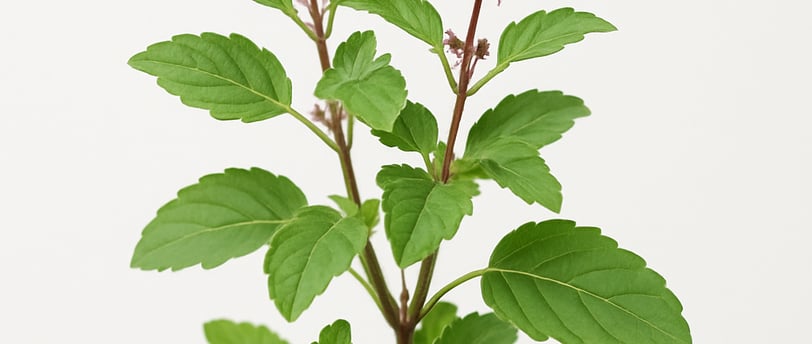The Tulsi Plant: A Comprehensive Guide to Its Uses, Growth, and Medicinal Benefits


Introduction to Tulsi: The Holy Basil
Tulsi, scientifically known as Ocimum sanctum or Ocimum tenuiflorum, is a revered plant in many cultures, particularly in India. Commonly referred to as Holy Basil, Tulsi is not only cherished for its aromatic leaves but also for its vast medicinal uses. This blog post explores the various applications of tulsi, including its cultivation practices and health benefits, making it a valuable addition to any garden.
How to Grow Tulsi
Growing tulsi is an uncomplicated process, beneficial for both novice and experienced gardeners. The plant thrives in warm, sunny environments, requiring at least six hours of sunlight daily. For optimal growth, plant tulsi in well-drained soil enriched with organic matter. Water the plant adequately but avoid overwatering to prevent root rot. It's best to start tulsi from seeds or cuttings, ensuring they are planted during the spring or early summer months when the risk of frost has passed.
Tulsi can be cultivated indoors as well as outdoors. When grown indoors, choose a sunny windowsill or a location that receives ample light. Regular pruning encourages bushier growth and helps in obtaining fresh leaves throughout the growing season.
Medicinal Uses of Tulsi
Tulsi is renowned for its extensive range of medicinal properties. Traditionally, it has been used in Ayurvedic medicine to alleviate a variety of health issues. Rich in antioxidants, it combats stress, enhances immune function, and promotes cardiovascular health. During seasonal changes, tulsi is often brewed into teas to soothe colds, coughs, and sore throats.
The leaves can be consumed raw or in powdered form as a supplement, providing a natural means to manage conditions like diabetes and hypertension. Tulsi extracts are also popular in herbal formulations targeting inflammation and respiratory disorders.
Furthermore, the essential oils derived from tulsi are utilized in aromatherapy for their calming effects. The aroma of tulsi is believed to lift the mood and create a peaceful environment, enhancing overall well-being.
Conclusion
In summary, the tulsi plant, or Holy Basil, is an invaluable herb celebrated not only for its culinary qualities but also for its medicinal benefits. Understanding how to grow this versatile plant can vastly enrich your garden and wellness routine. With proper care and attention, tulsi can yield its aromatic leaves throughout the year, serving as a natural remedy for various ailments. Whether you use it in cooking, brewing teas, or for its therapeutic properties, incorporating tulsi into your lifestyle is sure to promote health and harmony.
